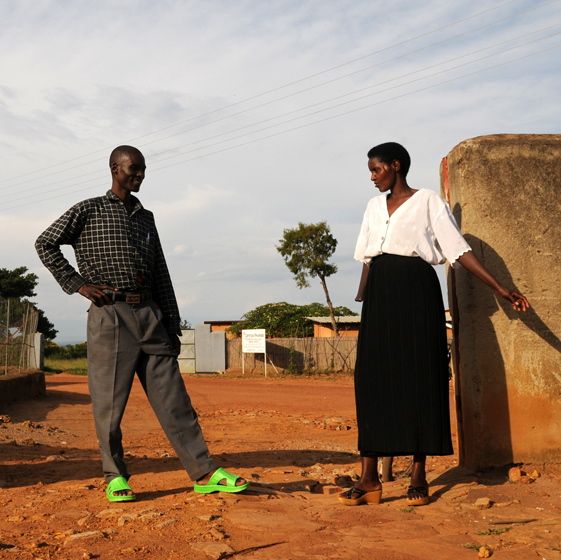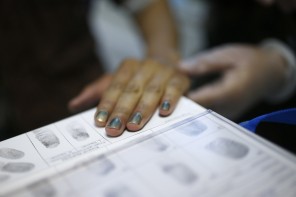 No Small Mercy
No Small Mercy
May 2009
(Photo by Lionel Healing)
Fifteen years after Rwandan Hutu massacred hundreds of thousands of their Tutsi countrymen, one survivor and the man who cut off her hand tell the horrible truth about the genocide and explain how, even with so much suffering between them, they eventually made peace.
MY NAME IS ALICE MUKARURINDA. My father was from a village in Ruhengeri, a region in northwestern Rwanda. In 1959, the government forced him to move, with thousands of other Tutsi, to Nyamata, a small, disease-ridden town between a swamp and a forest. My father was forced to move because he was a Tutsi.
For hundreds of years, Hutu and Tutsi shared Rwanda. But being a Tutsi became important in colonial times. When the Belgian colonists came in 1916, they decided the Tutsi were more clever and more beautiful, taller and stronger than the Hutu. Later they introduced policies in Rwanda that turned these two groups into races and divided the country between them.
Jealousy grew between the two because Tutsi had cattle, while Hutu worked in the fields. Rwandese society sees people with cattle as rich. So the hatred between the two comes from being greedy.
When the Belgians left and the Hutu took over, Hutu started killing Tutsi. There were massacres in 1959, 1963, 1992, and 1994 , but it feels like Hutu have always killed Tutsi. They killed Tutsi because Tutsi have things.
* * *
I AM EMMANUEL NDAYISABA. I am from Nyamata, too. Before the war, I was a metalworker. I never finished school; I was too poor to pay. I would have liked to study English, but why dream about things that can never happen?
As kids, we learned to hate Tutsi from our parents. They said Tutsi are not even from Rwanda. They demonstrated how to kill a Tutsi with a spear. They said we could tell who the Tutsi were because of how they are shaped.
But my mother was a Tutsi, so I was confused. My grandfather taught me all the ways Tutsi are bad; sometimes I interrupted him and said, “But we pray in the same church!” I’d tell him about a Tutsi friend who gave me sweet potatoes or milk. Then he would chase me and beat me with his walking stick.


